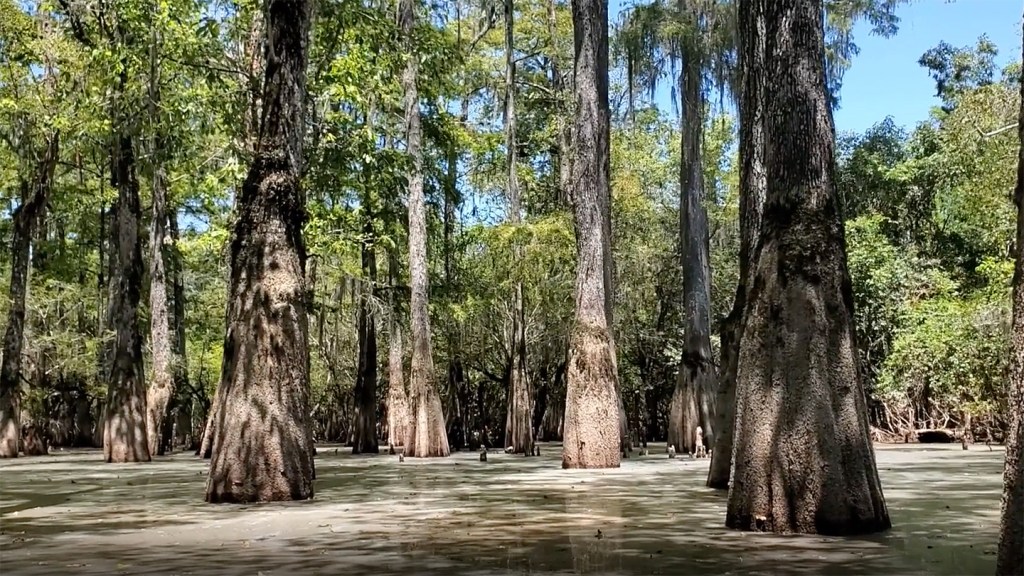One River, No Lake — Monticello’s mayor continues fight against ‘One Lake’; Pearl River is 3rd most-endangered river in U.S.
Published 10:17 am Tuesday, April 18, 2023

- AMERICAN RIVERS VIDEO STILL Pearl River
The Pearl River is significantly closer to being protected from potential damage caused by the One Lake Project.
Monticello Mayor Martha Watts is glad to see the progress. After repeated trips to such places as the Pentagon, the office of U.S. Rep. Michael Guest, and the Environmental Protection Agency, the river that flows through Lawrence County has been added to the list of America’s Most Endangered Rivers.
Only 10 rivers are on the list, and the river that flows through Monticello is now No. 3 on that list. The Pearl River winds south from Neshoba County to eventually empty into the Gulf of Mexico. According to national conservation organization American Rivers, the Pearl River ranks fourth in freshwater discharge among rivers draining into the Gulf.
Trending
What is the One Lake Project?
“The One Lake Project is a private real estate development project that poses a significant and direct threat to the Pearl River as well as to everyone and everything south of it,” Watts said.
The project would destroy 2,500 acres of habitat to create a dam “disguised as a flood control solution,” according to Charles Pfeifer of the Jackson Audubon Society, that would result in increased pollution and damage to fish and wildlife habitats.
Of the three submitted plans, developers have failed to include associated costs such as bridge relocations and the cost of cleaning up three highly contaminated toxic waste sites, Watts said. The Army Corps of Engineers’ 1996 levee plan would solve the City of Jackson’s occasional flooding, the mayor said, and potentially be used for economic development such as walking trails and parks, and cost millions of dollars less than the One Lake Project.
“This ‘One Lake’ project would dredge and dam the Pearl River to create new waterfront property,” according to the American Rivers report, “destroying vital fish and wildlife habitat, worsening Jackson’s flooding and drinking water crisis, increasing toxic contamination, and reducing freshwater flows critical to the region’s important seafood and tourism economies.”
Trending
The One Lake Project would impact the river’s 110 species — including two federally-threatened species, the Gulf sturgeon and the endemic ringed sawback turtle — and floodplain forest bottomlands along the river, including the Audobon-certified Important Bird Area in LeFleur’s Bluff State Park.
Billions of gallons of untreated sewage have been directly released into the Pearl River annually from the City of Jackson’s sewage treatment plant, Watts said, including more than two billion gallons in 2022. The proposed dam placement would not allow enough dilution for the sewage flowing downstream, and the 92 permitted users south would not be allowed to continue operations at current levels.
These producers include farmers and saw mills, such as Georgia-Pacific Monticello, the largest contributor to the town’s economy.
“We are very concerned because of our high-level analysis of assumptions of possible downstream impacts is not optimistic,” a GP representative is quoted as saying in a letter from Mayor Watts to the Army Corps of Engineers. “Impact on the Monticello mill could be millions of dollars in terms of capital spend and ongoing expenses.”
“Dams are built to protect those downstream, not upstream, and can exacerbate flooding in surrounding areas,” Watts wrote in a letter to the U.S. Army Corps of Engineers. “The U.S. Army Corps of Engineers should not move forward with permitting the One Lake Project. Instead, [they] should move forward with their own already planned, non-structural and natural infrastructural solution to address the flooding in this area, causing no harm to those of us downstream in Mississippi and Louisiana.”
The Corps announced in October 2022 that it planned to spend $221 million on the One Lake Project, and had submitted a revised proposal in July to the Assistant Secretary of the Army. The updated proposal was expected to be released for public comment in spring 2023. Mississippi Senator Roger Wicker has been a proponent of the project.
Those opposed to the project have adopted the slogan, “One River, No Lake.”
What the American Rivers list does
The America’s Most Endangered Rivers list, now in its 38th year, underscores how human health and public safety depend upon the health of rivers. When a river is harmed, so is the health of all the life that depends upon it.
Rivers chosen for the list are selected from nominations based upon the river’s significance to people and wildlife; the magnitude of the threat to the river and communities; and a decision coming within the next 12 months that can be influenced by the public. This is not a list of “worst” or most polluted rivers, but a list of rivers at a crossroads, where key decisions in the coming months will determine the rivers’ fates.
At number 3 on the 2023 list, the Pearl River is described as “threatened by a development scheme that would destroy wildlife habitat and worsen Jackson’s water crisis.” The Pearl is one of the most biodiverse rivers in the United States, and the primary drinking water source for Mississippi’s capital city.
The 10 rivers on this year’s list are, from 1 to 10: the Colorado River in the Grand Canyon; the Ohio River, flowing through six states; the Pearl River; the Snake River in Washington and Idaho; the Clark Fork River in Montana; the Eel River in California; the Lehigh River in Pennsylvania; the Chilkat and Klehini rivers in Alaska; the Rio Gallinas in New Mexico; and the Okefenokee Swamp in Georgia.
For more information, visit https://www.americanrivers.org/
What can be done?
The public needs to make their voice heard before final action of any kind is taken.
The environmental impact survey will be completed and released sometime between the third week of May and the second week of June, and a limited number of days will be open for the agencies to receive public comments. At that time, the Town of Monticello will publish the proper mailing addresses and the names of people who should be contacted with public comments. The agencies will accept written letters from individuals concerned about the potential environmental impacts of the project on the river and its surrounding areas.
“The agencies all need to hear from everyone why this needs to be stopped,” Watts said. “We need you to tell these agencies to stop One Lake and save the Pearl River.”





